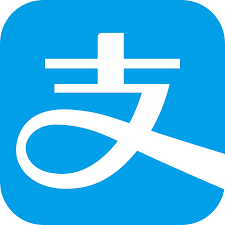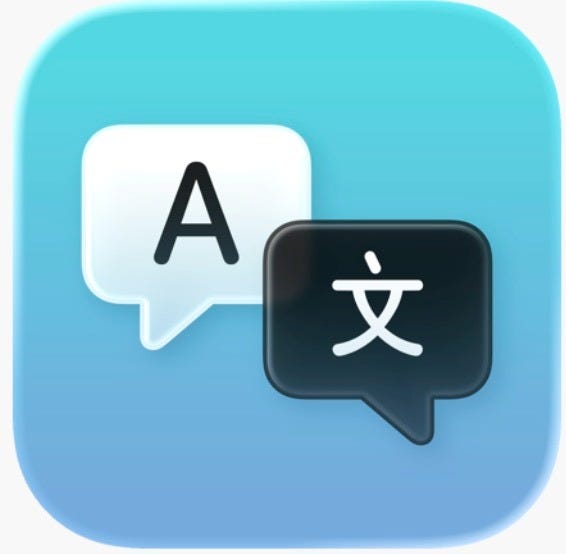Essentials for Independent Travel in China
You should visit China. It’s vast, very diverse, safe, easy to get around, inexpensive, interesting, not what you expect, and increasingly important in the world. Go see for yourself.
However, unlike the rest of the world, China uses its own parallel set of apps that you will need to operate there. Here are what I consider the essential mobile apps for independent travel in China. A good rule of thumb is to download your apps outside of China before you leave, because most are behind their great firewall. Make sure you are downloading the “international” version of the app (if it has one) so that it uses English.
(China has a new visa-free 10-day option that makes it easier than ever to visit. For details of this transit visa see this blog thread.)
Modern China lives on the phone. You need a good solid local connection for your apps. Some US-based mobile plans like T-Mobile or Google Fi will automatically give you cell coverage in China, and others like Verizon will charge you a premium $12/day. For everyone else, or to avoid the surcharge, you’ll need a local SIM. You can get a SIM card at the landing airport but recent phone models permit eSIMS, which is a mere app you load instead of a card. You pay for different data plans.
There are a bunch of eSIM startups, like Saily, Holify, and Airalo. You can also purchase an eSIM from Trip (see below). Loading an eSIM at the moment is way more cumbersome than it should be for all of them, so I’d recommend you download your eSIM before you arrive. One of the benefits of some of the eSIMS is that they route their traffic through Hong Kong or Singapore so they act as a built-in VPN, which means you can avoid needing that app on your phone (see below). I’ve been using Airalo as an eSIM in Asian and European countries, and it works fine in China. Importantly, Airalo has a VPN built in, so in China I could do my email, chat AI, and newssites on my phone effortlessly.
The Great Firewall will block Gmail, ChatGPT, social media, YouTube, and major newssites among others. To get around this frustrating block on your phone, use a good eSIM. To get around it on your laptop you’ll need a VPN. VPNs are in a cat-and-mouse race to keep the channel open, and they don’t always work. I’ve had success in China using a paid version of Express VPN ($8 per month). Other travelers and many expats living in China prefer AstrillVPN, which is more expensive at $15 per month. Make sure you have updated it before you leave with the latest version, which is updated frequently. It’s a good idea to download a second version as a backup in case your main choice stops working, which is not uncommon.
China is cashless; no one uses cash anymore, except desperate tourists. And most stores do not accept credit cards. There are two widespread digital cash systems, WeChat and Alipay. I recommend using Alipay because they now make it very easy for foreigners to set up an account linked to your credit card. The Alipay app will generate a QR code the seller will scan, or you can scan their QR code. Alipay is a super-app with many sub apps inside it, such as rideshares, bikeshares, tickets, and translation. This app is an essential must-have.
There is no Uber or Lyft, but there is Didi, which works the same. You can install the Didi app, but even better, Didi is available within the Alipay app. So you don’t need to set up anything new. Look for Didi inside Alipay. Very convenient. I prefer using Didi to a taxi to eliminate the challenge of communicating my destination. The common protocol is to recite the last four digits of your phone number when you enter the car to confirm your ride.
Use Wechat to text, call, chat with other Chinese at all levels. It’s the one app everyone in China has. Everyone will ask you for your Wechat account when you part or before you meet. It by far is the preferred way to communicate. You scan each other’s QR codes to exchange numbers. Installing WeChat outside of China is cumbersome, but a good idea.
Amap is the best map app in China. (Google and Apple Maps are not as current, nor as detailed as Amap.) Besides navigation purposes, Amap is also useful for searching for what restaurants or sights are nearby in English. It kind of works like Yelp-lite. It also gives you detailed instructions and connections for public transit and subways in a city, which is a real lifesaver. (Use Alipay to purchase your tickets.) You need to load the app on your phone away from China or with a VPN in order to get the English version.
You can use the Google translate app (with a VPN), but I usually wind up using the built in Apple Translate app on my iPhone. (Alipay has a translation app, too). You’ll need at least one of them. Point your camera/phone at text on a sign or menu for translation, or use ‘conversation” mode to translate speech as text, or even a spoken conversation.
For booking flights and high speed trains in China, use Trip. They are reliable and pretty much cover all options. Trains go almost anywhere, but domestic flights are cheap and plentiful. You can book both with Trip. Also Trip is the easiest for booking hotels in China. Just out of habit I still use Booking.com, which also works for hotels (not trains or planes). Trip has the best selection in less touristy places, while Booking.com will work for most cities.
Not essential, but bike shares are available in most Chinese cities. Weather permitting, bikes are a great way to sight see or get around. Good news: Use your Alipay app to unlock several colors of them (each color a different company). The Hello Ride sub-app inside Alipay will unlock the blue ones. (You do not need to download a separate app.) They are cheap, about $1 per hour, and you can rent them one-way.











We go to China every couple of years to visit the in-laws, and are usually there for a month at a time.
T-Mobile works well in China, and we don't bother with an in-country sim; we use T-Mobile mostly because of its good international setup. T-Mobile also isn't behind the "firewall" so you can access your email and such without bothering with VPNs. When we're in China, we pay for the (temporary) higher-speed "international upgrade" data plan.
I typically bring my laptop, and use a hotspot using T-Mobile to access the Western internet. Occasionally we have to futz with VPNs but mostly not.
Hi Kevin,
I lived in China for the better part of two years and did lots of independent travel. I highly agree that most people should visit China; a person cannot understand what the limits of their culture and civilization are and how many unspoken rules they expect and follow until they visit a completely different culture with a totally foreign rulebook. So much opportunity for frustration, which is the crucible of real growth and learning.
Your list is good, but I would offer a couple of tweaks that might streamline things for visitors.
First, if you are using an international cell plan like Google Fi (or I had T-Mobile) you may not need a VPN at all; I could use my cell data to access all my regular apps. For VPNs, the most functional ones change all the time as the Great Firewall and protocols evolve; I started with Express but later switched to Astrill.
A convenient tip is that Alipay works easily with a foreign bank card; I have spent days frustratedly trying to set up WeChat pay with a foreign card to no avail (some people get it to work easily, I am not so lucky). In AliPay also you can load didi, Trip, and other (HeMa for grocery delivery, local public transport payment apps) useful things as mini apps and pay easily via alipay. Trip sometimes has big discounts via the mini-app. Almost everyone accepts both AliPay and WeChat, they're as common and interchangeable as visa and mastercard (and for reference they're called Zhifubao and Weixin in Chinese, many people may not recognize the English names if you try to ask). It is true that very few stores accept foreign credit cards (the only exception I found was Ikea, but it was an ordeal), but I never found a place that didn't accept cash (having change is another story though).
I find that Baidu Translate is the best for English-Chinese translation. China has devoted enormous resources to perfecting English-Chinese translation whereas others like apple and google worry about all sorts of different language combinations, so as a result Chinese-English will usually be better in Chinese apps. And if you are not a fluent English speaker, say you're French, you may have better luck doing French<-->English<-->Chinese than just French<-->Chinese, just because of the relative demand and amount of training data for each of those combinations.
Just my two cents. If anyone is venturing around Shanghai or Suzhou that was where I lived so I'm happy to give specific pointers, drop me a message.
Readers may also be interested to check out my recent post on How China has Changed (https://whitherthewest.substack.com/p/how-china-has-changed)